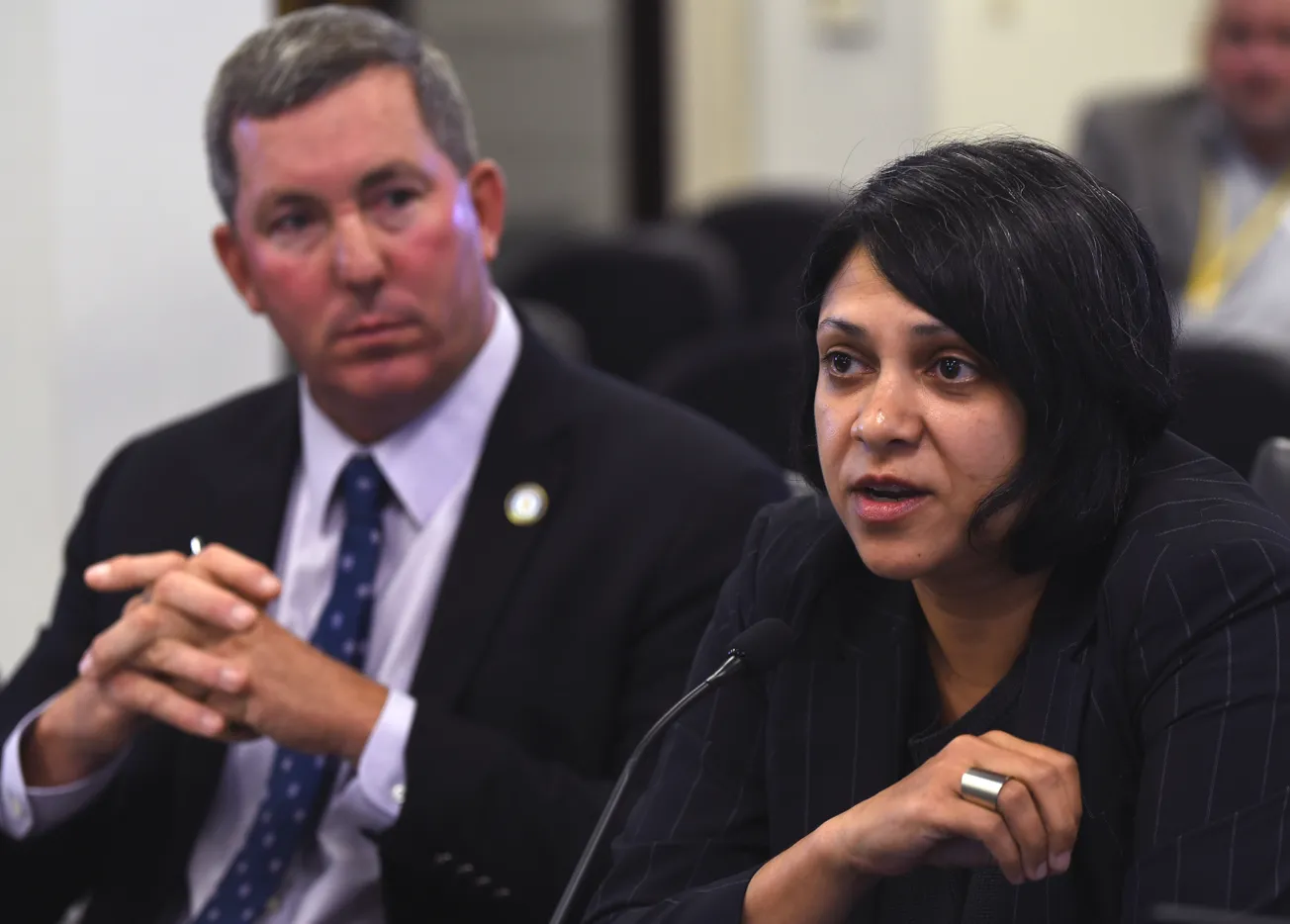FRANKFORT, Ky. (Aug. 15, 2024) — The Workforce Attraction and Retention Task Force on Wednesday heard from two legislators and others about barriers some legal immigrants face when they seek employment.
Rep. Matthew Koch (R-Paris) and Rep. Nima Kulkarni (D-Louisville) testified during the meeting about those challenges and ways services might be connected to make attaining employment easier.
Koch recalled that, while serving in the military in Afghanistan, he met a translator who also worked in the medical profession before he immigrated to the United States.
“He goes from working in the medical field over in Afghanistan to coming over here and driving a cab,” Koch said. “And that’s always resonated with me because he did a great service for our country.”
Koch said Wednesday’s discussions dealt with those who came to the United States legally.
“Let me tell you what this conversation is not. This is not a conversation about the border of the flow of illegal immigrants. I’m a Marine. There’s nothing I love more than a secure perimeter,” he said. “This is about the Green Card holders. This is about our international students. This is about those who have come over here seeking asylum. Think about Ukraine. Think about Iraq.”
Kulkarni said Kentucky is not the only entity dealing with challenges related to helping immigrants obtain employment, and learning best practices is paramount.
“It’s not necessarily a Kentucky-specific issue, either. There’s not one solution that’s worked in every state. I will say overall what you heard from our guests, you’ve heard models that work, programs that work, but that have really sprouted up in areas on their own in a response to a growing need that is only getting bigger,” she said.
If Kentucky officials take on some responsibility for funding, expanding and supporting programs where they exist, the commonwealth will benefit, Kulkarni said. Kentucky has the potential to harness a huge and growing potential workforce that’s already here, she added.
Kristina Mielke, of Jewish Family and Career Services in Louisville, testified that Kentucky could benefit from legal immigrants who are in high-demand professions such as medicine and dentistry.
Sen. Robin L. Webb (D-Grayson), who practices law, said protocols could possibly be put in place — such as an apprenticeship or practicum under supervision — or some acknowledgement of job seekers’ skills could be made.
“There are other ways to verify things, to come up with some alternative criteria for that. And then incorporate that with testing protocols. And I know a lot of these professions, including mine, are somewhat protectionist.” she said.
Kulkarni said some who have come to Kentucky had to quickly flee their country of origin without documentation, which is often required to secure a job.
“The reason I think that we wanted to identify barriers to historically underrepresented workforce populations is exactly the point Senator Webb was making. Why are licensure boards not able to individually evaluate these foreign credentials because we’re talking about populations that are displaced, so they don’t come here with certified transcripts and copies of diplomas that we all may have in our basements or attics,” she said.
Co-Chair Sen. Max Wise (R-Campbellsville) said recent legislation has helped some new Kentuckians more easily obtain employment, particularly related to nail salons.
The bill sparked a lot of interest “by that community that showed up in the halls here in Frankfort. I know that was a huge push into getting that bill across the line,” he said.
Sen. Jason Howell (R-Murray) expressed concern about the difficulty of having enough interpreters and interpreters of certain languages. He said he thinks those who testified conveyed a similar message that efforts could be coordinated.
“This is new to us on a supply-demand standpoint. And we’re just not set up from an infrastructure thing to deal with this appropriately,” he said.
Kulkarni pointed out that the employment process could be improved by the federal government.
“So, this is just hopefully the beginning of the conversation. I mean in my years as an immigration practitioner, I do primarily employment based, so there’s a lot of issues federally. There are a lot of reforms that should happen federally. And increasingly, it means states have come up with their solutions in order to harness patterns of global migration,” she said.
--30--
“Capitol Update” is a non-partisan publication of the Legislative Research Commission






